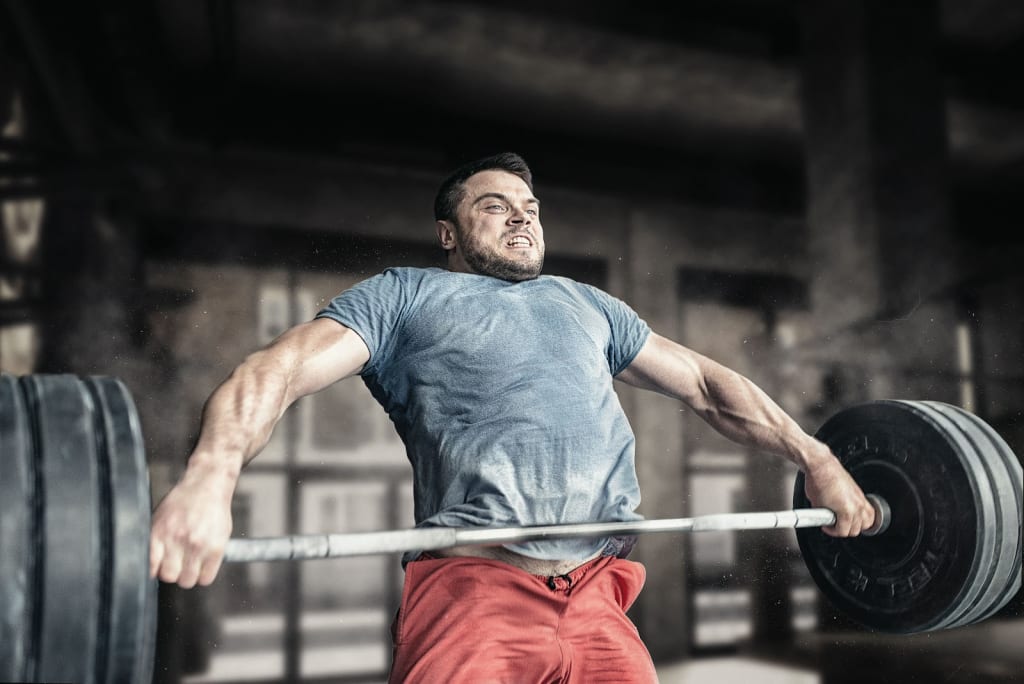
The main feature of the weightlifter's nutrition is the increased calorie content due to proteins and carbohydrates. Fat in the diet should be slightly higher than that of the average person. There are significantly more proteins and carbohydrates: about 250 g and 800 g, respectively. But these are general figures. Nutrition depends on the age, gender, goals in the preparatory period. It differs during and after competitions. Further in the article, we will touch on the general aspects of the weightlifter's nutrition.
Nutrition before the competition
In the preparatory period, the diet depends on your desired weight: the athlete is gaining weight or losing weight. During the exercise, a weightlifter burned 70–75 kcal per kilogram of the bodyweight. This is approximately 5500–6500 kcal per day if we talk about men, and 5000–6000 kcal, if we talk about women. To calculate the daily ration, it is necessary to multiply the weight of the athlete by 70 kcal and add 10% from the total amount. It is believed that 10% of food is not digested, so you need to include them in the calculations.
For example, an 80 kg athlete should eat 6160 kcal per day:
70 kcal × 80 + 10% = 5600 kcal + 560 = 6160 kcal
The basic rule in weightlifting nutrition is that food should be high-calorie and easy to digest. Most of the diet should be proteins and carbohydrates, to a lesser extent - fats, especially saturated ones.

When the amount of protein in the diet exceeds 2 g / kg, the body quickly loses potassium and calcium, which support normal muscle function and the conduction of nerve impulses. In addition to them, it is important to include in the diet phosphorus, magnesium, iron, vitamin C.
The daily intake of nutrients in the diet of a weightlifter with an energy value of 66–67 kcal
Type of nutrients Gram per kilogram of weight
Protein 2,5–2,9
Fat 1,8–2,0
Carbs 10,0–11,8
The proportion of fat in the diet should not exceed 30%, but also not fall below 15% of total energy intake. Otherwise, the body begins to use energy for training from internal reserves. But you can eat 25–45 g of fat 1–4 hours before training to use your carbohydrate reserves sparingly.
If you plan to train for weight loss, Oleksiy Torokhtiy's nutrition programs Nutrition - Male weight loss or Nutrition - Female weight loss will help you. Remember, at the beginning of the training cycle, Weight loss refers to a decrease in your overall body weight. Then the weight stabilizes and even increases slightly due to the growth of muscle volume and density.
It is recommended to eat 5-6 meals a day at the same time. In this mode, the body synthesizes proteins faster.
3-4 days before the competition, the diet is increasingly filled with carbohydrates. To relieve the extra load from the liver, they completely refuse spicy, fried foods. Meat or fish is eaten only boiled or baked.
Nutrition during the competition
The most important rule of nutrition during the competition is to maintain the usual regimen and composition of the dishes. Maintain high blood glucose levels before entering the platform. The closer the time of the competition, the smaller the portion will be:
in 4 hours: up to 300 g of food (boiled meat, carrots, potatoes, bread) - 8-10 g of carbohydrates per kilogram of body weight;
for 2-3 hours: up to 250 g (omelet, cocoa, lean baked fish) - 4 g of carbohydrates per kilogram of mass.
for 1 hour: up to 200 g (soft-boiled egg, milkshake, fruit, yogurt) - 1 g of carbohydrates per 1 kg of weight.
The body synthesizes a limited amount of glycogen per unit of time. The principle "the more carbohydrates, the more glycogen in the competition" is nothing more than a myth. But the number of carbohydrates eaten more than 1.5 g per kilogram of the body has a bad effect on the gastrointestinal tract.
Nutrition after the competition
After the competition, the body's supply of carbohydrates sharply decreases, but the body continues to work in a high-energy metabolism mode for about three more hours. To prevent it from wasting energy from other sources, it is recommended:
1. eat about 100 g of carbohydrates, ideally honey, fruits, sweet tea;
2. drink enough water;
3. eat hot food half an hour after the end of the competition - boiled meat or fish with vegetables.
Listen to your body, consult with knowledgeable people and achieve high results!
About the Creator
Shan Ge
Shan is a reputed author and he writes various articles on casinos. He suggest to play with the bonuses to earn more and get offers.






Comments
There are no comments for this story
Be the first to respond and start the conversation.